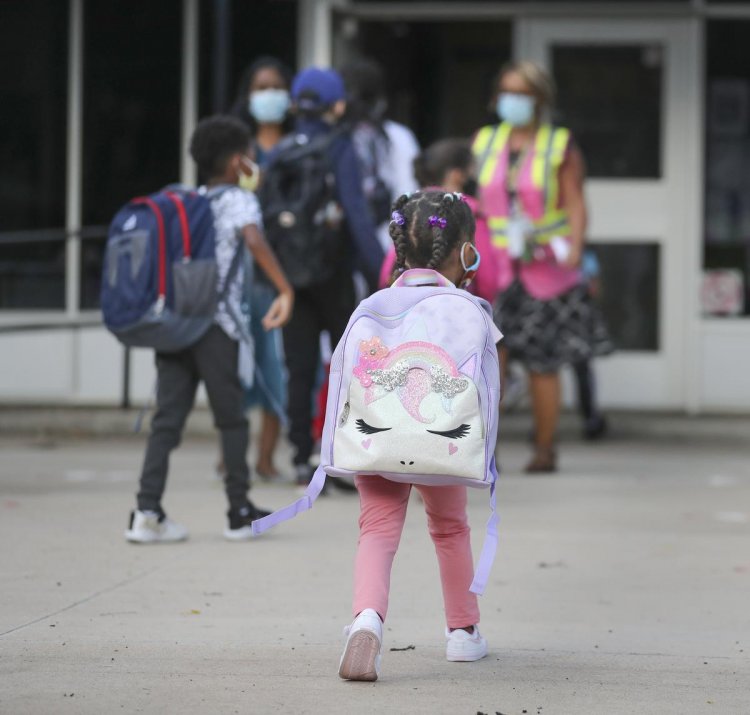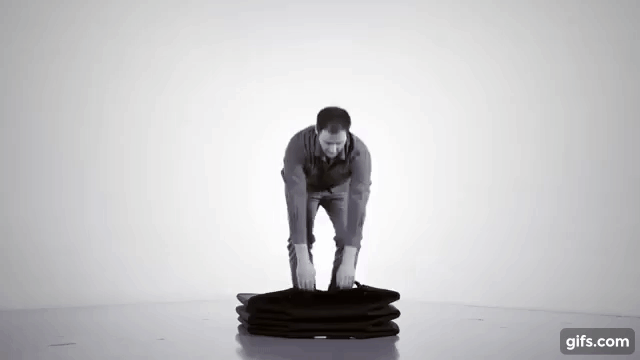Firefighters have been to the same Toronto address more than 500 times this year. Every call is treated as an emergency
A Toronto fire truck has been sent to the same seniors building almost six times daily in 2022, responding to calls that are seldom an actual emergency.Not many residents of a Toronto Community Housing Corp. building at 10 Deauville Lane, in Flemingdon Park, need help from Toronto Fire Service to deal with medical problems or other issues.But a pumper truck with three firefighters and a captain was sent 421 times to 10 Deauville between Jan. 1 and March 14, the vast majority of which were to the same unit. Fire trucks and personnel continue to attend at the building multiple times daily.The second-highest number of calls responded to by Toronto Fire between Jan. 1 and March 14 totalled 87, at a respite facility for homeless people in the Better Living Centre at the Canadian National Exhibition.A Toronto firefighter emailed to say that constantly dispatching fire trucks to 10 Deauville is a frivolous and dangerous misuse of resources, given that so few of the calls could be described as an emergency.Calls from the same unit continue to pour into 911, forcing fire personnel to respond — often with sirens wailing and red lights flashing — even if they know from past experience it’s unlikely an emergency, said the firefighter, who hasn’t been named so he doesn’t get into trouble or lose his job.Acting Fire Chief Jim Jessop defended the response, saying they’re required to assume every 911 call is legitimate, even if firefighters hardly ever find an emergency when they get there.“Toronto Fire Service will respond every time we’re called for help,” said Jessop. “We will not ever presume it is not an emergency until we get there and we determine that either it is or it isn’t.“We would certainly never ever prejudge any person calling 911 and predetermining that they do not need our help. So when citizens call for help, Toronto Fire Service will respond and they’re going to respond compassionately and professionally, as we do on average 300 to 400 times a day.”Jessop refused to say how many calls were to any one unit at 10 Deauville and would not discuss how often firefighters find a legitimate emergency when they get there.“I’m not going to get into which calls are going to which units that make them potentially identifiable. I am saying we’ve been to that building 421 times for emergency 911 calls for service as of March 14.”TCHC declined to comment for this story.Responding to so many calls at 10 Deauville has not placed a strain on the fire service’s capacity to act on other emergencies, he said.“Certainly no building has ever put us behind the eight ball in terms of our ability to respond because this is what we do, this is what we prepare for,” said Jessop, adding the service responded to 134,000 calls last year.With so many calls to the same address, trucks are sent from other parts of the city to more evenly spread out the load and take some of the pressure to respond off the nearest fire station, said the firefighter.Toronto Fire first provided data showing it went to 10 Deauville 360 times between Jan. 1 and March 7. Jessop later said it went there another 61 times between March 7 and March 14, an average of nearly nine times a day.A note from a city communications staffer said that “Toronto Fire Service data is not unit-specific, but anecdotally we know that the majority of calls are from a single source.”Toronto Fire was asked to reveal how emergencies are described to 911 in calls from 10 Deauville. It refused to provide the information, citing privacy, even though the building has more than 100 units and it would not identify any person or unit.The firefighter who contacted me said the person calling 911 is confined to a bed and is assisted by a personal support worker several times daily. When the support worker isn’t there, calls are made to 911 about things that are not an emergency.There are days when Toronto Fire goes to 10 Deauville far more often than the daily average of just under six times, said the firefighter, noting that a truck went there 11 times on Feb. 28 and 23 times in a 24-hour period over another two days.In a response to questions, the city said “we acknowledge that the current dispatch protocol, as it stands, comes from a place of compassion. This particular situation requires a multi-jurisdictional approach that takes all emergency services, social services and health partners into account.“Toronto Fire Services will continue to work collaboratively with our partners to best support the situation until resolved.”For now, firefighters will continue to go to 10 Deauville whenever a 911 call comes in, said Jessop.“I want to be clear, we can’t assume. In our world, for us to assume it’s not an emergency is a very dangerous premise.”Anyone confined to bed by illness deserves compassion. But there must be a better way than sending four firefighters in a truck nearly six times per day, every single day.What’s broken in your neighbourhood? Wherever you are in Greater Toronto, we want to


A Toronto fire truck has been sent to the same seniors building almost six times daily in 2022, responding to calls that are seldom an actual emergency.
Not many residents of a Toronto Community Housing Corp. building at 10 Deauville Lane, in Flemingdon Park, need help from Toronto Fire Service to deal with medical problems or other issues.
But a pumper truck with three firefighters and a captain was sent 421 times to 10 Deauville between Jan. 1 and March 14, the vast majority of which were to the same unit. Fire trucks and personnel continue to attend at the building multiple times daily.
The second-highest number of calls responded to by Toronto Fire between Jan. 1 and March 14 totalled 87, at a respite facility for homeless people in the Better Living Centre at the Canadian National Exhibition.
A Toronto firefighter emailed to say that constantly dispatching fire trucks to 10 Deauville is a frivolous and dangerous misuse of resources, given that so few of the calls could be described as an emergency.
Calls from the same unit continue to pour into 911, forcing fire personnel to respond — often with sirens wailing and red lights flashing — even if they know from past experience it’s unlikely an emergency, said the firefighter, who hasn’t been named so he doesn’t get into trouble or lose his job.
Acting Fire Chief Jim Jessop defended the response, saying they’re required to assume every 911 call is legitimate, even if firefighters hardly ever find an emergency when they get there.
“Toronto Fire Service will respond every time we’re called for help,” said Jessop. “We will not ever presume it is not an emergency until we get there and we determine that either it is or it isn’t.
“We would certainly never ever prejudge any person calling 911 and predetermining that they do not need our help. So when citizens call for help, Toronto Fire Service will respond and they’re going to respond compassionately and professionally, as we do on average 300 to 400 times a day.”
Jessop refused to say how many calls were to any one unit at 10 Deauville and would not discuss how often firefighters find a legitimate emergency when they get there.
“I’m not going to get into which calls are going to which units that make them potentially identifiable. I am saying we’ve been to that building 421 times for emergency 911 calls for service as of March 14.”
TCHC declined to comment for this story.
Responding to so many calls at 10 Deauville has not placed a strain on the fire service’s capacity to act on other emergencies, he said.
“Certainly no building has ever put us behind the eight ball in terms of our ability to respond because this is what we do, this is what we prepare for,” said Jessop, adding the service responded to 134,000 calls last year.
With so many calls to the same address, trucks are sent from other parts of the city to more evenly spread out the load and take some of the pressure to respond off the nearest fire station, said the firefighter.
Toronto Fire first provided data showing it went to 10 Deauville 360 times between Jan. 1 and March 7. Jessop later said it went there another 61 times between March 7 and March 14, an average of nearly nine times a day.
A note from a city communications staffer said that “Toronto Fire Service data is not unit-specific, but anecdotally we know that the majority of calls are from a single source.”
Toronto Fire was asked to reveal how emergencies are described to 911 in calls from 10 Deauville. It refused to provide the information, citing privacy, even though the building has more than 100 units and it would not identify any person or unit.
The firefighter who contacted me said the person calling 911 is confined to a bed and is assisted by a personal support worker several times daily. When the support worker isn’t there, calls are made to 911 about things that are not an emergency.
There are days when Toronto Fire goes to 10 Deauville far more often than the daily average of just under six times, said the firefighter, noting that a truck went there 11 times on Feb. 28 and 23 times in a 24-hour period over another two days.
In a response to questions, the city said “we acknowledge that the current dispatch protocol, as it stands, comes from a place of compassion. This particular situation requires a multi-jurisdictional approach that takes all emergency services, social services and health partners into account.
“Toronto Fire Services will continue to work collaboratively with our partners to best support the situation until resolved.”
For now, firefighters will continue to go to 10 Deauville whenever a 911 call comes in, said Jessop.
“I want to be clear, we can’t assume. In our world, for us to assume it’s not an emergency is a very dangerous premise.”
Anyone confined to bed by illness deserves compassion. But there must be a better way than sending four firefighters in a truck nearly six times per day, every single day.
What’s broken in your neighbourhood? Wherever you are in Greater Toronto, we want to know. Email jlakey@thestar.ca or follow @TOStarFixer on Twitter




















